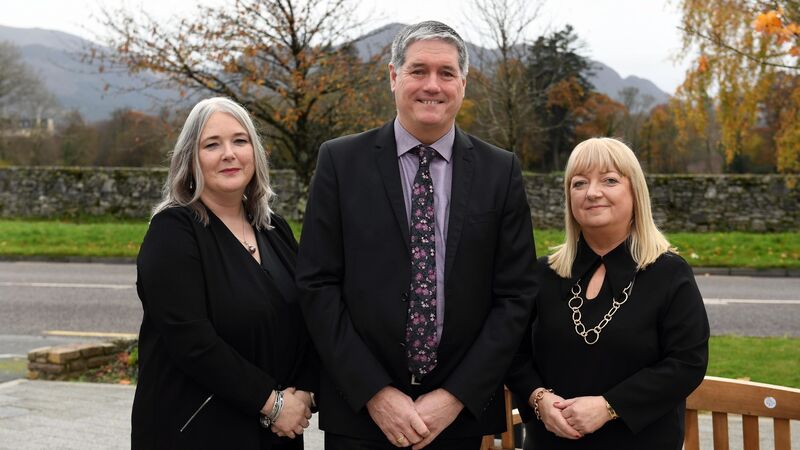Primary schools are struggling to stay afloat, hears national principals' conference

Dr Patricia Mannix-McNamara, University of Limerick, IPPN CEO Páiric Clerkin, and IPPN president Louise Tobin at the donference in the Gleneagle Hotel, Killarney. Picture: Don MacMonagle
Primary schools may need an unprecedented financial bailout as soon as January, with many schools now projecting that they will “struggle to keep the lights on after Christmas”, principals have warned.
Speaking at the Irish Primary Principals' Network's (IPPN) annual conference at the INEC Killarney, Carlow principal Simon Lewis said that urgent action is now needed to plug the funding gaps suffered in many schools.










